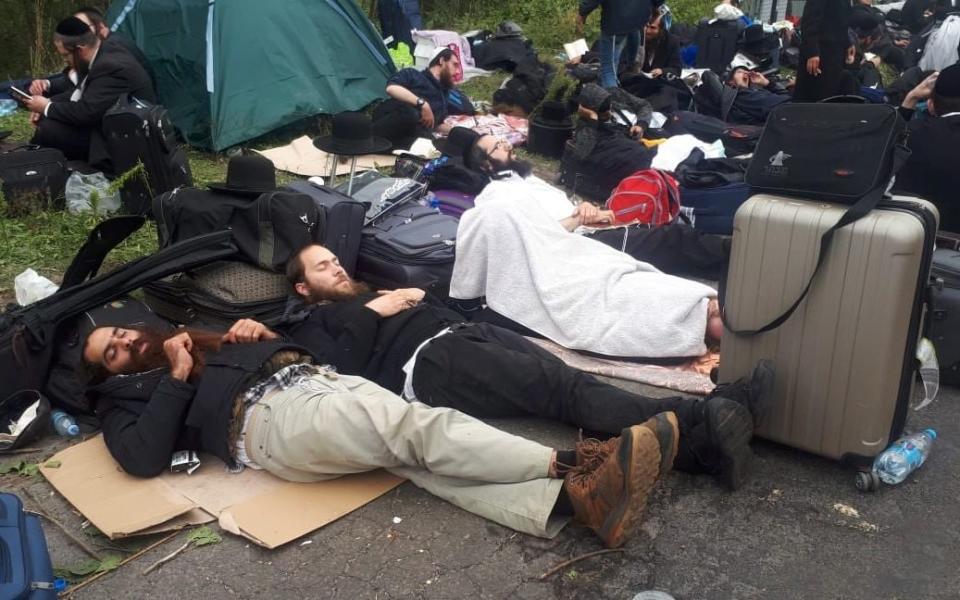Coronavirus restrictions strand hundreds of Hasidic Jews at Ukraine-Belarus border

At least one thousand Hasidic Jews are stranded between Ukraine and Belarus due to coronavirus restrictions, hoping to get to their traditional pilgrimage site in time for the Jewish New Year.
Hasidic Jews began to arrive at the border on Monday, and by Wednesday morning there were about 1,000 people near a border crossing in Ukraine’s north who “would not give up on trying to get into Ukraine,” the country’s State Border Guards Service said.
Footage from the scene showed men and boys dressed in traditional black robes camping out on the road, praying and playing music in front of a line of camouflaged border guards.
A long line of lorries got stuck at the border as the pilgrims blocked the highway leading from Belarus in Ukraine.
Serhiy Deyneko, chief of the Ukrainian Border Guards Service, arrived at the scene on Tuesday but did not manage to convince the pilgrims to leave. He fears that another 4,000 pilgrims could arrive at other crossing points in the coming days.

The sleepy town of Uman, about 200 kilometres south of the capital Kyiv, standing on picturesque riverbanks is home to the gravesite of Rabbi Nahman of Bratsav, a revered figure for ultra-Orthodox Jews.
The upcoming Rosh Hashanah, or the Jewish New Year, in the past attracted up to 40,000 Hasidic pilgrims to the provincial town of 80,000 people.
Faced with a growing number of Covid-19 cases for the country’s strained health care system, the office of the Ukrainian president announced last month that it would seal country’s border for all foreigners for a whole month after the Israeli government had asked Kyiv to restrict the pilgrimage this year because of the growing pandemic in both countries.
Ukraine on Wednesday recorded nearly 3,000 new cases and the record high 76 deaths.
Israel’s coronavirus czar publicly spoke against the pilgrimage, and Ukraine’s leading rabbis have warned Jews not to visit Ukraine this year, saying that the local health system might collapse after getting hit by a second wave of coronavirus.

Hasidic Jews ended up at the Ukrainian border after officials in Belarus, which does not have any coronavirus restrictions in place, let them enter the country and leave for the buffer zone.
The move has been described as Belarus’ apparent tit-for-tat for the Ukrainian government’s vocal stance on President Alexander Lukashenko’s dubious re-election and ensuring police violence against opposition protesters.
Ukraine's foreign ministry has said that it would “take a pause” in its diplomatic ties with its northern neighbour to avoid “reputational, moral and ethical risks.”
Anton Herashchenko, Ukraine’s deputy interior ministry, in comments to Ukraine 24 TV channel on Wednesday lashed out at unnamed individuals for giving the pilgrims a false hope that they can make the pilgrimage this year.
“Those people who cheated and lured Hasidic Jews to Belarus, promising that they can get them to Ukraine _ they committed a crime. We have no grounds to let (Hasidic Jews) into Ukraine,” Mr Herashchenko said, quoting the temporary travel ban.

